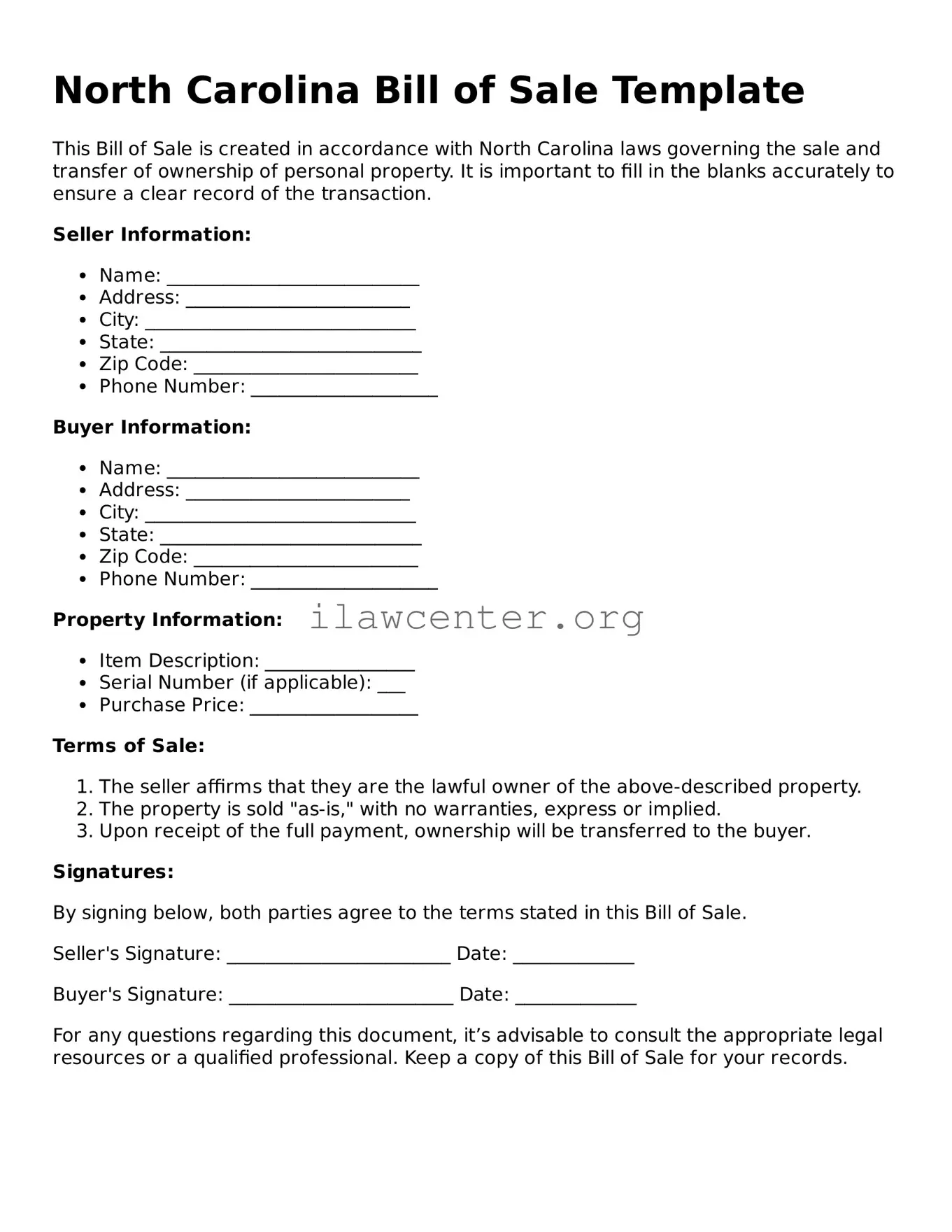Instructions on Utilizing North Carolina Bill of Sale
After obtaining the North Carolina Bill of Sale form, it's essential to ensure that all necessary details are accurately filled out. This document serves as proof of a transaction between the seller and buyer, outlining the specifics of the sale. Below are the steps to efficiently complete this form.
- Obtain the form: You can find the North Carolina Bill of Sale form online or at a local government office.
- Identify the parties: Fill in the names, addresses, and contact information for both the seller and buyer. Ensure that the names are spelled correctly.
- Description of the item: Provide a clear and detailed description of the item being sold. Include important details such as make, model, year, and any unique features or identification numbers.
- Sales price: Clearly state the agreed-upon sales price. This amount should reflect the total cost agreed upon by both parties.
- Date of transaction: Write the date when the sale is taking place.
- Signatures: Both the seller and buyer should sign the form. Including the date next to each signature is also advisable.
- Witness or notary (if required): Depending on the value of the item, a witness or notary public may need to sign to validate the transaction.
Once the form is completed, keep a copy for your records. The buyer should also retain a copy as proof of ownership. If applicable, ensure that the proper transfer of title or registration is handled as per North Carolina's regulations.
